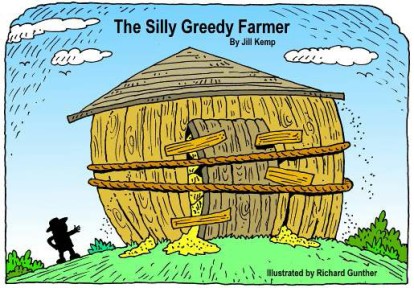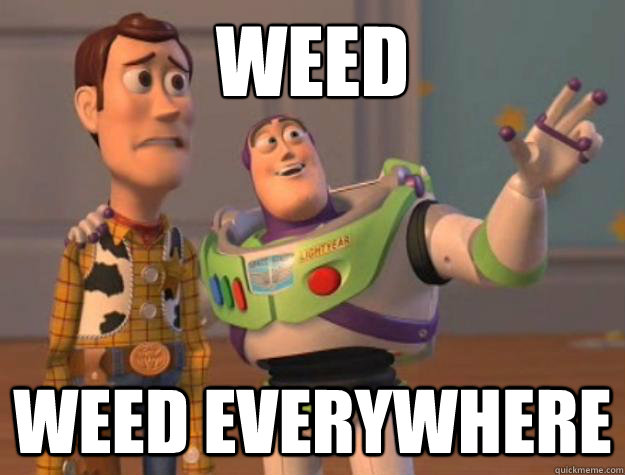
A couple of weeks ago they held the first national March for Science. I love science, and I have a deep appreciation for science and scientific inquiry. I don’t trust scientists, however, and I’m very suspicious of their political agenda, so I did not feel inclined to join them in this demonstration. For as much as I love science, I don’t worship it. In fact, I think it’s kind of a bad cultural habit, but it’s one I picked up early, so I try to make the most of it.

I understand the science behind the Climate Crisis, and I know why ecologists say we have entered the sixth great extinction event in the history of life on Earth. I appreciate that many scientists recognize the grave threat we face from these crises, and I know that they hope to raise awareness about why we should pay attention to this kind of science, but I also know that scientists led us down this road to ruin in the first place, and their siren song continues to seduce us at our peril.

A lot of people tell me that they think science has made us smarter, and that the technology it spawned has made life better, but they could hardly be more wrong. Quite the opposite, in fact. Science may have changed our cultural mythology, but it has failed to reform our culture in any significant way. Meanwhile, technology has unleashed the deadliest holocaust on planet Earth since an asteroid strike wiped out the dinosaurs 65 million years ago. That’s what science tells us about science and technology.

The objective evidence gathered in the field of ecology should disabuse us of any delusions of grandeur we derive from the mental masturbation we call quantum mechanics and theoretical physics. According to the World Wildlife Federation’s Living Planet Report of 2016, global wildlife populations, declined by 58% between 1970 and 2012, due primarily to human activity. That means there are less than half as many wild animals on Earth today, as there were on the first Earth Day. Science and technology had a large part in making these numbers a reality. Does that sound smart? Does that sound like an improvement?

Far from an intellectual advance, science has merely replaced one ludicrous myth with another. We replaced the myth of an omnipotent deity who created the world and molded humanity in his own image with the myth of a giant bomb that exploded out of nothing. They’re both stupid, and they’re both wrong and neither of these myths have made us any smarter. We’ve merely replaced the guys in monasteries who wore robes and studied ancient texts with guys in universities who wear lab-coats and peer into microscopes. Beneath them both lies the same pathological, ecocidal culture we call “civilization.” Instead of bestowing wisdom, science usurped the power of the church, creating a new religion based on the same old stupidity.

Here’s an example that illustrates how scientists dress up the same old medieval religious stupidity in the new clothes of secular science: Darwin theorized, not that we humans descended from apes, but that we are apes, and that we are but one specialized species of animal in a great pantheon of specialists. This, generally accepted, scientific theory of the origin of species, should have laid to rest the religious idea that God made man in his own image, and blown that “dominion” shit right out of the water, but these Medieval ideas remain as strong as ever, especially among scientists, because universities continue to teach scientists to view human beings as the only intelligent species on planet Earth, and the only ones capable of determining our own destiny. Most scientists still presume the superiority of the human intellect, and believe that the millions of other, “inferior,” species upon this planet exist purely for our benefit, to study, displace, or even kill for sport, just because those creatures don’t share our particular specialty. How is that different from any other form of chauvinism?

Businessmen and politicians use science in exactly the same way they used religion in medieval times: to control the masses and to give them an advantage in war. Instead of buying indulgences, they now invest in clean technology, or hire a panel of experts. Instead of asking the Pope to bless their military campaigns and inspire their troops, the military now pays universities to research and design new weapons, including psychological ones.

Both scientists and the clergy gained power over the masses by performing magic tricks, and promising salvation. Christians celebrate the resurrection of Jesus, while scientists point to “Trinity,” the first detonation of a nuclear bomb. Christianity promises life after death. Science promises a brighter future through technology.

The fact that we still fall for this BS, even though industrial technology invariably creates much bigger problems than it solves, demonstrates our willful ignorance and cultural intransigence. In reality, we’re no closer to understanding how the universe works, today, than we were 500 years ago, or even five thousand years ago, and modern Americans are probably the stupidest creatures to ever walk the face of the Earth, thanks largely to science and technology.

When you consider science from the perspective of how it has affected our culture, I hardly see science as an improvement over religion. Trading religion for science is kind of like trading The New Yorker for Penthouse. Religion incorporates literature, poetry, art, music, dance, architecture, and more, into a framework that advises people on how to live and addresses most aspects of human life, whereas science just says, “Show me what I want to see.”

Where religion teaches kindness, charity, decency and humility, science presents endless possibilities, stripped of morals, ethics or aesthetics, like doors that open dark rooms full of unforeseen consequences. Science loves unforeseen consequences. “Unforeseen consequences” is where science gets all of its new material. Don’t get me wrong, I’m no fan of medieval Christianity, but I’d no sooner march for science, in the way it is practiced today, than I would march in support of the Inquisition.




































































































